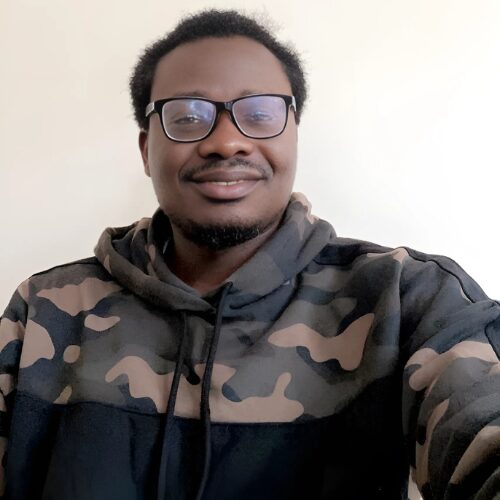As financial institutions worldwide faced unprecedented pressures from rapid digitisation, regulatory changes, and increasingly sophisticated financial crimes, Nigerian-born financial integrity expert Kolade Olusola Ogunsola, now based in the United Kingdom, emerged with a research-led model designed to transform how organisations detect risk, combat fraud, and sustain trust. His study, Enhancing Financial Integrity Through an Advanced Internal Audit Risk Assessment and Governance Model appeared in the January–February 2021 issue of the International Journal of Multidisciplinary Research and Growth Evaluation. The timing could not have been more apt for the UK’s financial services sector, which generates more than £200 billion annually and was under mounting scrutiny to close vulnerabilities exposed by cyber-enabled fraud, anti-money-laundering breaches, and governance failures. Speaking about his work, Ogunsola explained, “This paper is the culmination of my professional experience and my conviction that financial integrity is the lifeblood of any economy. I wanted to create a framework that is not just academically robust but practical for organisations that are trying to navigate an increasingly complex financial landscape.”
At the time of publication, Ogunsola was already applying the same principles in his day-to-day work at PwC in Reading, where he had served since 2019 as Assistant Manager, Assurance. His assignments were diverse but united by complexity and high stakes: developing a valuation model for a $15 million debt instrument listed on The International Stock Exchange, a market with a capitalisation exceeding $500 billion, on behalf of an independent software vendor backed by a private equity firm; supervising a four-person team delivering an end-to-end review for a fast-food chain reorganising more than 250 UK outlets; and evaluating the share valuation of a private company recognised by the Financial Times in 2020 as one of Europe’s fastest-growing firms. These live engagements demanded the same mix of technical rigour, strategic foresight, and regulatory fluency that underpin his scholarly proposals. “When I see the scale of losses and the erosion of public trust caused by preventable failures, I feel a responsibility to do something,” he said. “My motivation was to design a system that could catch these risks early, give decision-makers better information, and ultimately protect both institutions and the people who rely on them.”

His research challenges the adequacy of traditional, periodic, sample-based audits in an age where transaction volumes and speeds mean that by the time irregularities are spotted, the damage is often irreversible. “The old approach was like looking for a leak after the ship has already taken on water,” he said. “We need continuous monitoring that can flag risks as they happen, not months later when the trail has gone cold.” Ogunsola’s model calls for continuous auditing with real-time data analysis and AI-powered anomaly detection, enabling organisations to move from reactive investigation to proactive prevention. The urgency is underscored by the scale of the problem: fraud is estimated to cost the UK economy £190 billion annually, while compliance failures have brought record fines to major institutions.
Advanced analytics are central to his model. Machine learning algorithms can uncover suspicious transaction patterns — from unauthorised payments to unusual vendor activities — that traditional methods might miss. Yet Ogunsola insists technology alone is insufficient without a governance culture that demands and enforces integrity. “Technology is only as good as the governance culture behind it,” he noted. “If the leadership is not committed to integrity, the tools will not be used effectively.” His governance blueprint embeds board-level accountability, independent oversight, and strong whistleblower protections as standard. These recommendations align with UK governance codes but extend them, advocating for greater diversity and independence in boards, stricter conflict-of-interest disclosures, and truly empowered audit committees.
The paper’s practical grounding is reinforced by its global reference points. It cites JPMorgan Chase, Siemens, HSBC, and Citibank as examples of organisations that have successfully applied AI-driven risk scoring and real-time dashboards to enhance fraud detection, compliance, and audit efficiency. For the UK, with its reputation as a world financial hub at stake, Ogunsola frames such practices as necessities rather than innovations. “It’s not about adopting technology for its own sake,” he said. “It’s about protecting market stability and public trust.”
One of the model’s most distinctive features is its integration of cybersecurity risk assessment into the financial audit process. With the National Cyber Security Centre warning of heightened state-sponsored threats, Ogunsola argues that penetration testing, third-party vendor risk assessments, and data breach simulations should be conducted alongside standard financial checks. “Cybersecurity and financial integrity are two sides of the same coin,” he explained. “If your systems are vulnerable to attack, your finances are vulnerable too. The audit process must test both.” This integrated approach, he argues, shields institutions not only from direct monetary losses but also from the reputational damage that follows publicised breaches.
Ogunsola’s proposals also look outward to the global regulatory environment. He urges the UK to take a lead in shaping international standards for blockchain auditing, decentralised finance oversight, and digital asset governance. “We cannot afford to be reactive,” he warned. “Regulatory harmonisation across borders is essential if we want a level playing field and effective oversight in a globalised market.” Among his key recommendations are embedding advanced analytics in high-risk audit environments, ensuring whistleblower protections are both legislated and enforced, developing blockchain reporting standards for digital transactions, integrating cybersecurity governance into compliance frameworks, and deepening international regulatory cooperation.
These are not abstract ambitions. They reflect the practical constraints and opportunities Ogunsola encounters in his work with PwC’s clients, where he sees first-hand how governance frameworks operate under pressure. “For me, it’s not enough to identify the problem,” he said. “I want to be part of building the solution — one that can be implemented in the real world and make a tangible difference.” His dual perspective — as a Nigerian professional embedded in the UK’s financial services landscape — gives him a unique vantage point, attuned both to the robust regulatory environments of developed markets and the adaptive, resource-efficient approaches often required in emerging economies.
Since its publication, Ogunsola’s paper has attracted attention not just for its technical merit but for its urgency. In conversations at professional forums, industry panels, and within client boardrooms, he has discussed the framework’s potential. Colleagues recall his emphasis on blending human oversight with machine intelligence, and on using technology to enhance — not replace — the judgement of experienced auditors. “We are not trying to automate trust,” he often tells them. “We are trying to use technology to make trust more resilient.” The pressures on financial systems did not abate. The acceleration of digital banking, expansion of cryptocurrency markets, and ongoing pandemic-driven economic disruptions all reinforced the relevance of Ogunsola’s warnings. In interviews, he has stressed that the pace of change requires a corresponding agility in audit and governance functions. “Risks will continue to evolve,” he said. “Our defences must evolve with them. If we stand still, we fall behind — and in finance, falling behind can mean systemic failure.”
For policymakers and industry leaders, his work presents both a challenge and an opportunity. The challenge lies in committing resources and political will to overhaul entrenched audit processes. The opportunity is the prospect of building a more transparent, resilient financial ecosystem capable of withstanding both current and future threats. As Ogunsola sees it, “The UK has the expertise, the infrastructure, and the global influence to set the standard. We just need the resolve to do it.”
In this vision, the role of the auditor expands from compliance gatekeeper to strategic partner in risk management. The adoption of continuous auditing, integrated cybersecurity checks, and blockchain-verified audit trails transforms financial oversight from a static, periodic ritual into a dynamic, real-time safeguard. For organisations willing to invest in such capabilities, the rewards are measured not just in reduced losses but in enhanced credibility and stakeholder confidence.
Kolade Olusola Ogunsola’s voice in this debate is shaped by both professional immersion and personal conviction. His trajectory — from Nigeria to a senior assurance role in the UK, from client-facing problem-solving to internationally published research — reflects a consistent drive to bridge theory and practice. “I’ve seen how much damage weak governance can do,” he said. “I’ve also seen how strong governance, backed by the right tools, can restore confidence and drive growth. My goal is to make the second outcome the norm, not the exception.”
For the UK, whose financial standing depends on maintaining a reputation for probity and innovation, embracing such expertise is more than a matter of academic interest. It is, as Ogunsola’s work makes clear, a strategic imperative.


































